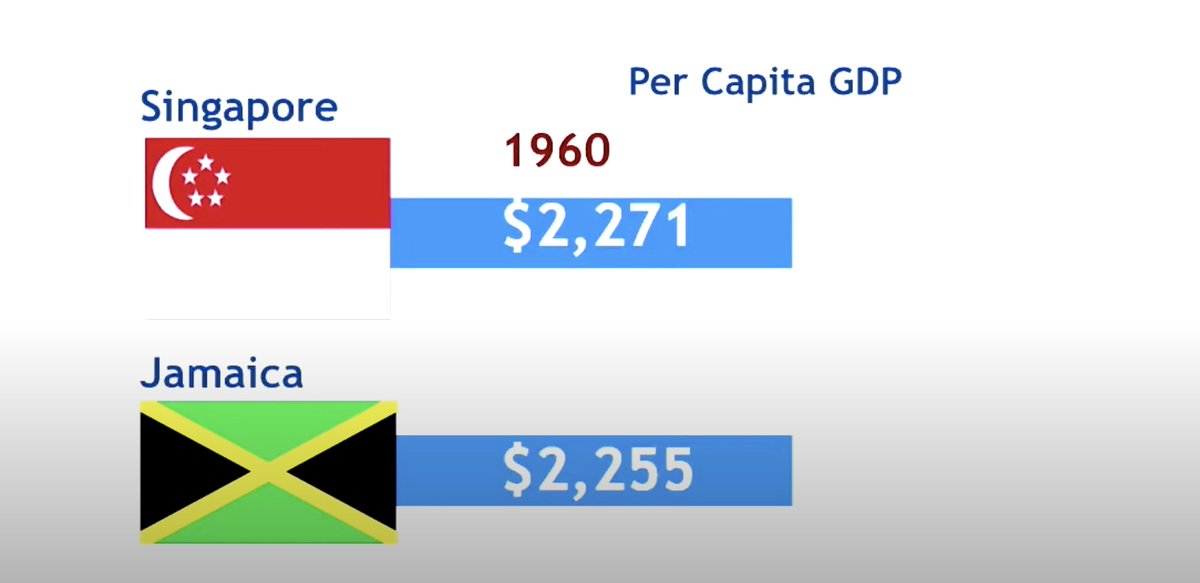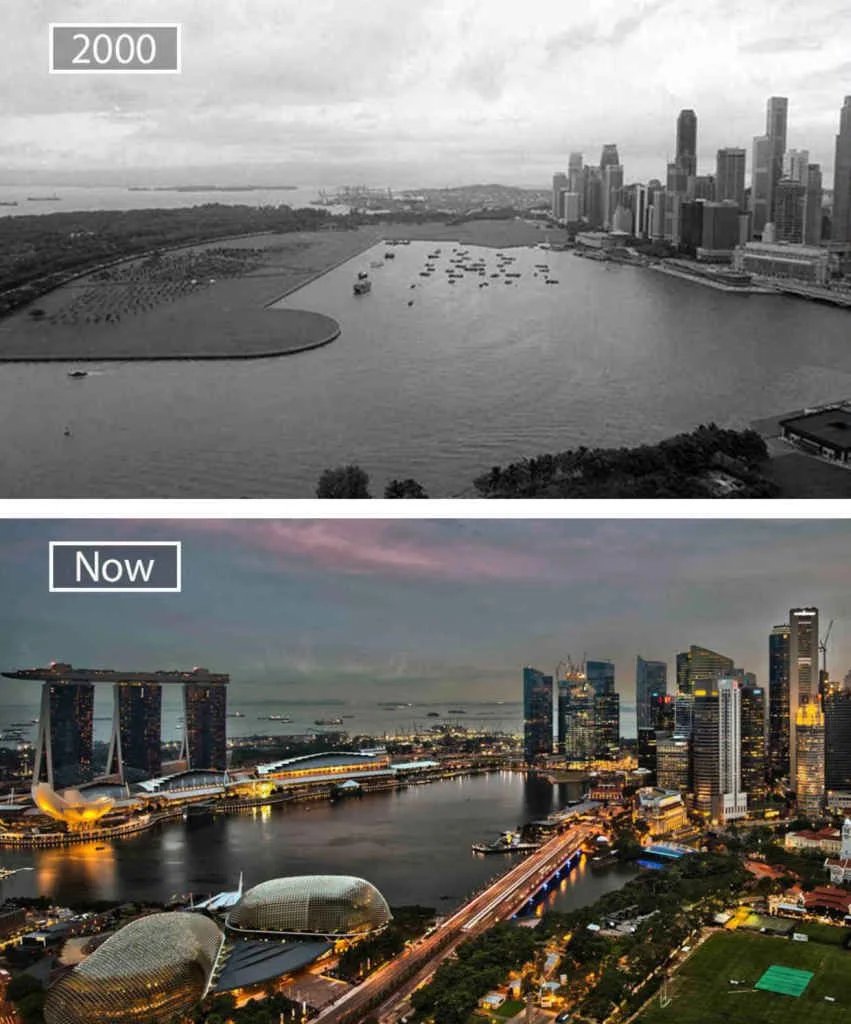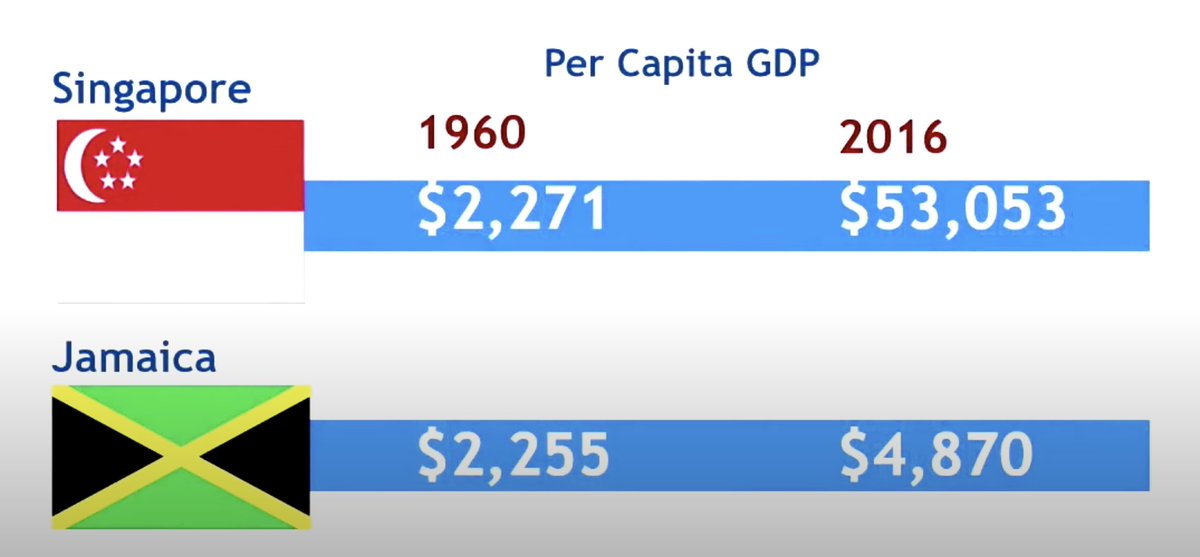
1/ In 1960, both Jamacia and Singapore separated from the great British Empire.
Both island nations, both started with similar GDP, using common law & English as a primary language of business.
Both island nations, both started with similar GDP, using common law & English as a primary language of business.

2/ At the time, Singapore was a mosquito-ridden swamp, complete under-developed, and where the heroin trade was the most dynamic (black) part of the economy. 

3/ However, due to incredible foresight and vision are by one of the greatest leaders to ever live in the 20th century — Lee Kuan Yew — Singapore became one of the greatest, if not the greatest country in the world today. 

4/ According to various metrics by the UN, OECD, World Bank, and many others, Singapore ranks as one of the top jurisdictions in the world in:
• GDP per capita
• health care
• eduction
• ease of doing business
• low corruption
• infrastructure
• green/clean energy
• etc
• GDP per capita
• health care
• eduction
• ease of doing business
• low corruption
• infrastructure
• green/clean energy
• etc
5/ The success of this country comes down to a fantastic set of ideas, built on strength in leadership that many countries — even some of the biggest & strongest in the world — are clearly lacking today. As the timeless saying goes:
"...strong leaders create good times"
"...strong leaders create good times"

6/ Ohhh...
By the way, if you're wondering how the story ends?
No spoiler alerts here.
Singapore obviously became one of the greatest success stories in the post-World War 2 era.
#leadership
By the way, if you're wondering how the story ends?
No spoiler alerts here.
Singapore obviously became one of the greatest success stories in the post-World War 2 era.
#leadership

• • •
Missing some Tweet in this thread? You can try to
force a refresh





